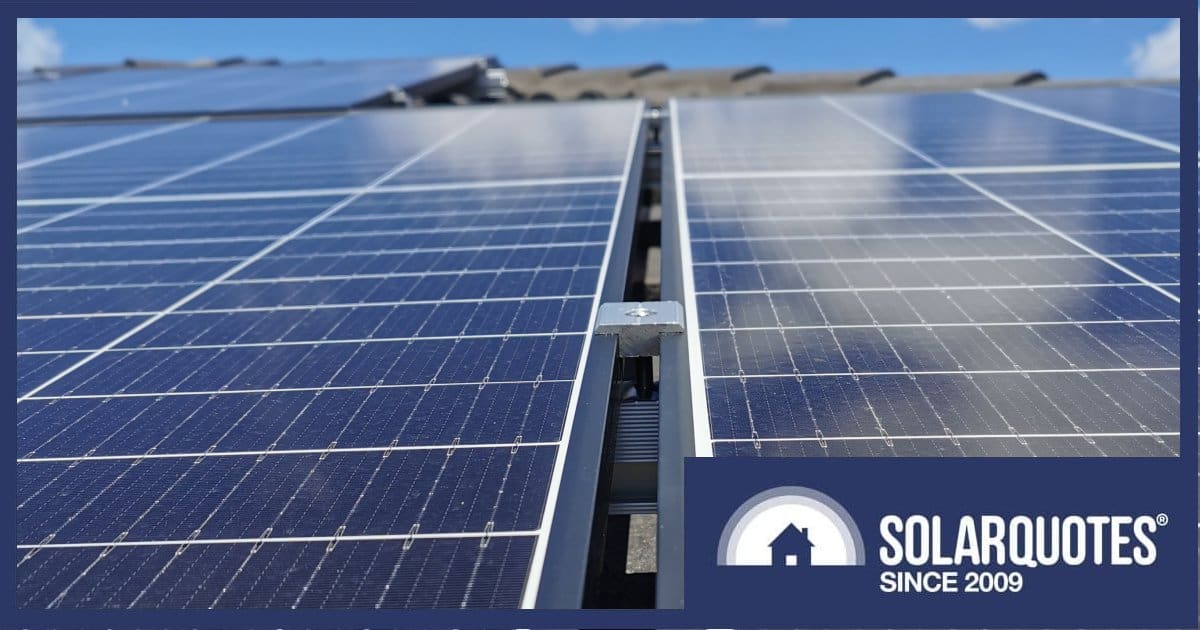
More stick than carrot could be perceived in the Greens’ proposed Renters Right To Solar pledge. It will be interesting to see how landlords react.
“There are seven million renters in Australia and they deserve to be able to cut their power bills and reduce their emissions, just like homeowners can,” said Greens Leader Adam Bandt.
No arguments there besides the number of renters stated – Mr. Bandt probably meant the number of Australians living in rental homes.
But that aside, what the Greens have planned to address this inequity could raise hackles among some investment property owners. According to initial details unveiled on Wednesday night, the Renters Right To Solar scheme would enable tenants to request (demand) a solar panel system up to 8kW capacity be installed at their rental properties.
The Stick – Landlords Compelled To Play …And Pay
Landlords would only be able to deny the tenant’s request on reasonable grounds, such as body corporate rules precluding it, engineering challenges or local electricity network constraints.
A new $10 billion fund established through publicly-owned Snowy Hydro would pick up the tab for the installations – initially. The systems would be listed as Snowy Hydro assets, with a caveat placed on the property’s title. A caveat is a legal notice flagging potential purchasers/lenders that another party claims an interest or right over the property.
As well as being compelled to install solar panels, landlords would need to pay for the systems one way or another. Landlords could pay off the systems when they choose, but if the property is sold or ownership transferred, Snowy Hydro will be entitled to be repaid the full amount owing at that point.
The interest rate charged would be the annual change in either the Consumer Price Index (CPI) or Average Weekly Ordinary Time Earnings (AWOTE), whichever is less. The Australian Consumer Price Index rose 2.4% over the twelve months to December 2024 and the AWOTE increase in 2024 was approximately 3.89%.
The Renters Right To Solar scheme adds to a number of measures the Greens are taking to the election targeting the cost of living and climate crisis. The party previously announced their plans for grants and low-interest loans to help households and small businesses electrify and install solar batteries.
I’m not a landlord and I love solar power – but I’m just imagining a knee-jerk reaction from some (perhaps many?) investment property owners regarding this; particularly given the Greens’ other commitments regarding negative gearing and Capital Gains Tax discount reform.
There would be all sorts of questions as well, including:
- Can landlords bump up rent to help pay for the system?
- How much of a say would landlords have in the makeup of these systems and who installs them?
- What would happen to a landlord who refuses to allow a system to be installed?
And while solar power can add value to a property, how much value will that be in, say, 10 years from now when a system will be considered a bit old? With 8kW the maximum, might it be somewhat of a liability by then1?
The Carrot – There Wasn’t One (But They Exist)
The Renters Right To Solar announcement wasn’t accompanied by specific incentives for landlords to install these systems. However, there is some support currently available; for example the national solar rebate that can knock a big chunk off the upfront cost. There are also some state incentives to piggy-back on that, such as Victoria’s solar rebates for rental properties.
Of course, there’s also the warm and fuzzy feeling for a landlord helping renters slash their power bills and striking a bigger blow for climate action. And a home with a solar power system would be quite attractive to prospective renters, increasing the pool of tenant picks a landlord has – not that this is a problem these days.
The Greens deserve kudos for having a red-hot go at trying to tackle this very thorny problem. Whether this this is the best way to go about it is up for debate, but it could also trigger some ideas and sensible conversations on what might be a better/alternative approach (added: such as plug and play batteries). Have at it.
Footnotes
- On a related note, pick up some tips on buying a house with solar panels already installed. ↩

 RSS - Posts
RSS - Posts



Strange policy.
I’d think an easier way to handle the growing inequality between renters and owners would be some kind of BYO battery scheme.
Legislate that all rental homes (and new builds?) need an input circuit suitable for an AC coupled battery (and an auto grid disconnect in the case of an outage). Then renters can BYO their own (removable) battery.
Pros:
Lower electrical rates (charge from Off Peak)
Low cost to landlord.
Renter gets to keep battery.
Grid stabilisation/ peak reduction (black out protection?).
Cons:
Almost certainly would require re-writing of the various AS standards.
Increased insurance premiums….
Cost of batteries.
Any of the big name brand portable batteries (Ecoflow, Bluetti etc) could fill this niche, and I’m sure other manufacturers would jump on the chance to supply 7million batteries.
Many of these portable batteries have small solar inputs already, which a renter could hook removable panels to if they wished.
Am I missing some key point?
Renters don’t need solar. They need plug and play batteries.
https://www.solarquotes.com.au/blog/phase-shift-forget-rooftop-solar-renters-need-plug-play-batteries/
Yep, to be honest, unless you can stay home during the day to utilise all that power generated, there isn’t much value in solar without a battery these days anyway. So given you can get power contract that give you free power during the middle of the day, just a battery makes much more sense than just solar.